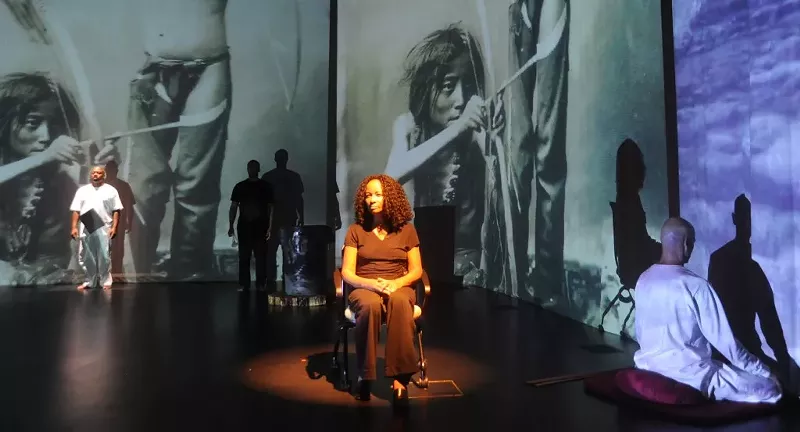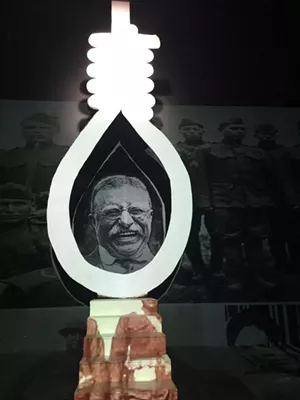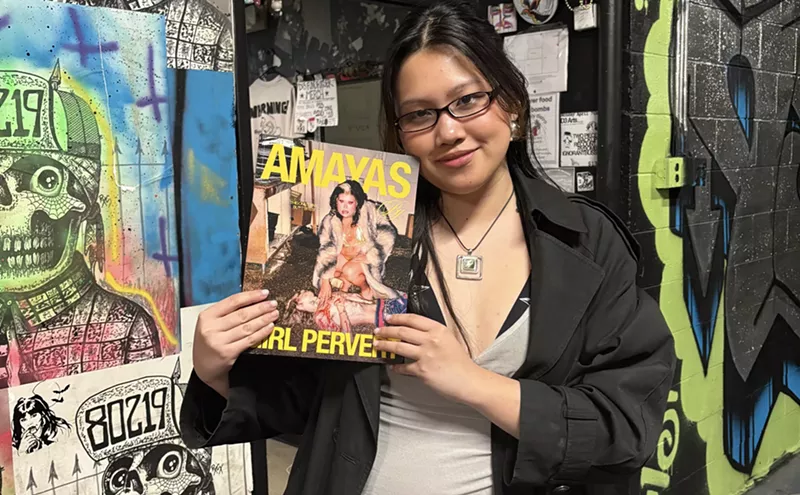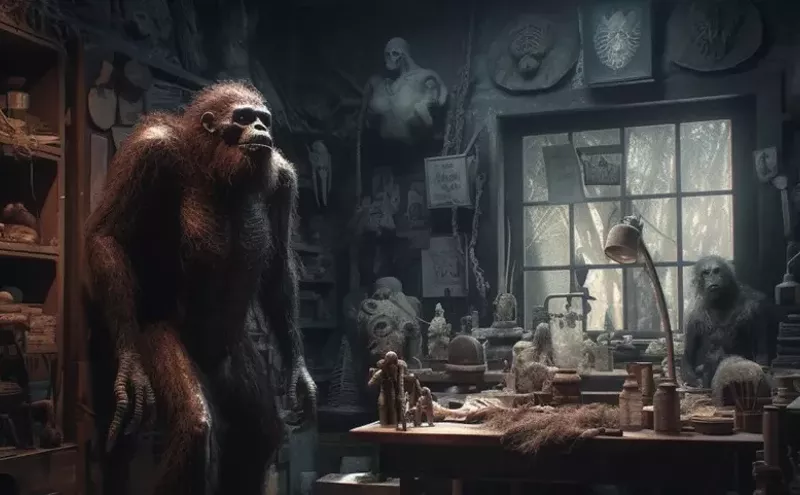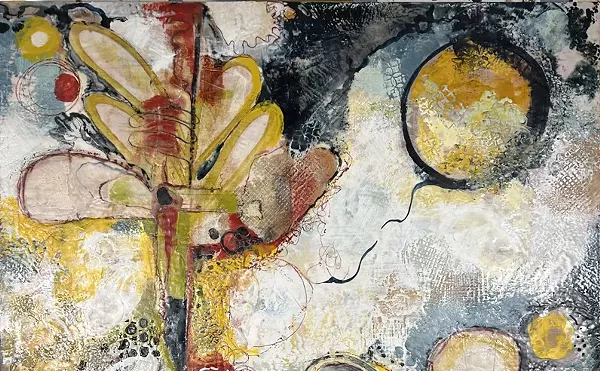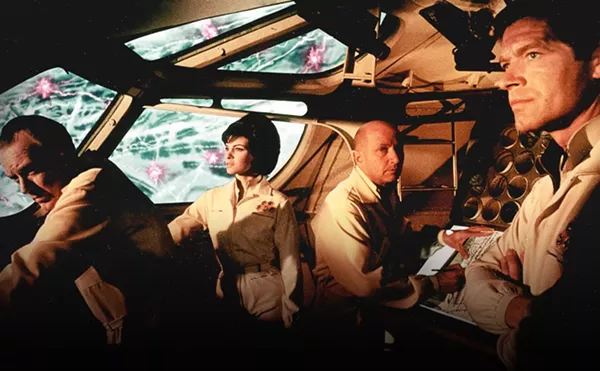The run of Motus Theater’s It’s Only a Paper Moon Hanging Over Immigration History will overlap with the solar eclipse on August 21, which delights artistic director Kirsten Wilson. “If you do a worldwide survey of eclipse lore, the theme that constantly occurs, with few exceptions, is it’s always a disruption of the established order,” she says. “Often that is experienced as a threat. But in the context of this performance, I see this disruption as an exciting possibility, and that by sitting in the dark of the theater imaging another way of building a new America, we are part of creating this new order.”
In It’s Only a Paper Moon, which is being workshopped at the Dairy Arts Center, Wilson wants to explore what constitutes race and whiteness, interact with audiences and encourage questioning and exploration. She’s done so before with theater: Motivated by hate crimes in Boulder in 2005 and 2006, including a racially motivated attack during which a University of Colorado student’s jaw was broken, Wilson created a piece called Rocks Karma Arrows. After it debuted in 2009, it caught the attention of community organizer Daniel Escalante as well as other activists, and together they created Motus Theater as a home for an arts-based, community-wide discussion. In 2013, Motus began focusing specifically on immigration; Wilson wrote a second play, Do You Know Who I Am?, based on monologues by undocumented immigrants, that debuted in 2014. This past April, Motus hosted a reading of the play in which law enforcement officials, including Boulder County District Attorney Stan Garnett, spoke the immigrants’ words. It received national attention and praise.
Now It’s Only a Paper Moon will continue the discussion. Instead of a paper moon, the action is dominated by the image of a giant noose, “an image of the color line, the border that needed to be crossed if you wanted to have full rights and assimilate into America,” says Wilson. “Most people don’t know you had to be white to naturalize from the founding of the United States until 1952.”
Jim Walker explains that he plays “various historical figures throughout the construction of whiteness in the play. There’s a refrain: Could this have turned out differently? For instance, genocide of Native Americans? Is it possible to have a different kind of meeting of cultures? The better we can hold these questions, the better prepared we are for the next conflict.” During some of his performance, he’ll struggle in a straitjacket, which “references the brutality of the history we’ve inherited,” he explains. “We can’t escape it. It’s been put on us. This is a garment we have to figure out how to get comfortable with — and I get to physicalize that.”
Wilson, whose background includes a master’s in contemporary performance from Naropa University, a master of divinity from Union Theological Seminary, and expertise in visual arts and autobiographical monologues, will be using “a lot of multimedia,” she says. “Giant paper dolls painted different colors, historical photos. The paint cans will be there, the paper, the pencils. We are using every means necessary to perform this art.” In addition, “people from the community will enter and ask questions.”
Story has power, she points out, citing D.W. Griffith’s 1915 film Birth of a Nation, in which the Ku Klux Klan was celebrated and white actors in blackface raped white women. She also cites Thomas Dartmouth Rice, whose minstrel shows caricatured black slaves and inspired Jim Crow laws. “These racial scripts were created, written out in laws and repeated until people believed they were real,” she says. “And theater has been a big part of substantiating these scripts. Birth of a Nation is the reason the KKK came to prominence in the West.”
“I am a white male,” says Walker. “How can I have conversations about these things? What do I know about being black in America, or a woman, or Jewish? But the more I can understand the system and my place within it, the better.
“What I’m excited about is that Kirsten’s work really puts on stage herself struggling with this material. I don’t mean that in a self-referential way. I mean in really intelligent and authentic ways, she dramatizes her own struggle, which others can relate to. How do we grapple with this past in all its complexity? We know the stories that make us feel good about ourselves and this nation, but what about those other stories that go into today — literally today, right where we’re standing? How do we enfold all that into our experience?”
It’s Only a Paper Moon opens August 17 and runs through August 27 at the Dairy Arts Center, 2590 Walnut Street in Boulder; call 303-444-7328 or go to motustheater.org for tickets.

Audio By Carbonatix
[
{
"name": "GPT - Billboard - Slot Inline - Content - Labeled - No Desktop",
"component": "23668565",
"insertPoint": "2",
"requiredCountToDisplay": "2"
},{
"name": "STN Player - Float - Mobile Only ",
"component": "23853568",
"insertPoint": "2",
"requiredCountToDisplay": "2"
},{
"name": "Editor Picks",
"component": "17242653",
"insertPoint": "4",
"requiredCountToDisplay": "1"
},{
"name": "Inline Links",
"component": "18838239",
"insertPoint": "8th",
"startingPoint": 8,
"requiredCountToDisplay": "7",
"maxInsertions": 25
},{
"name": "GPT - 2x Rectangles Desktop, Tower on Mobile - Labeled",
"component": "24956856",
"insertPoint": "8th",
"startingPoint": 8,
"requiredCountToDisplay": "7",
"maxInsertions": 25
},{
"name": "Inline Links",
"component": "18838239",
"insertPoint": "8th",
"startingPoint": 12,
"requiredCountToDisplay": "11",
"maxInsertions": 25
},{
"name": "GPT - Leaderboard to Tower - Slot Auto-select - Labeled",
"component": "17676724",
"insertPoint": "8th",
"startingPoint": 12,
"requiredCountToDisplay": "11",
"maxInsertions": 25
}
]

